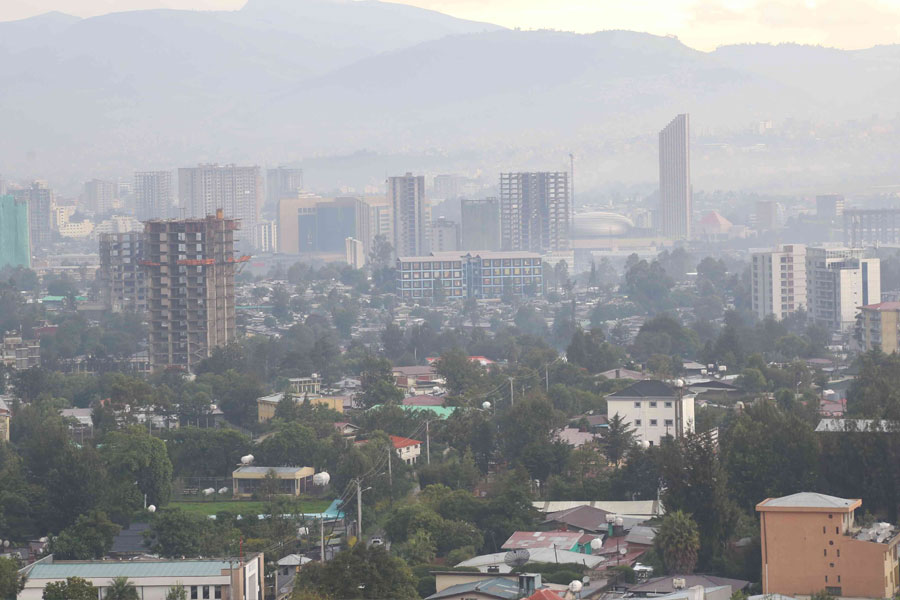
Radar | Jan 27,2024
Aug 10 , 2024
By Kidist Yidnekachew
Like many others, I was taken aback when social media was flooded with the news that the exchange rate of the Birr will be determined by market forces, last week. A dollar turned to 75 Br in a day passing the 100 Br mark over the week.
However, it took me a while to grasp the true impact of a floating currency and its far-reaching financial ramifications. I understand that the burden of this economic shift will be felt most acutely in everyday life. Uncertainty is palpable as many, including myself, are already pushed to our limits. The thought of economic hardships worsening is frustrating. Inflation is making its presence felt, and whether we like it or not, we must confront the reality it brings.
My thoughts particularly go out to those with lower incomes—like those who rise before dawn to tidy up the streets for a meagre income that does not match their efforts. For them, the rising cost of living is not just an inconvenience; it is a daily struggle that threatens survival.
Soon, explanatory videos and articles started to emerge, providing valuable insights. I learned that the decision is a pin point to attract foreign direct investment and its effect is expected to be seen after a while. Meanwhile, we should brace for impact.
In such times of economic tightness, producing locally becomes crucial to reducing the costs associated with imports. This consideration leads to the government's initiatives aimed at encouraging the production of goods within the country rather than relying on imports. The government hopes to reduce the country's dependency on foreign products, create jobs, and stabilize the economy. While this initiative seems promising, its success hinges on the government's ability to support and nurture these industries effectively. Without proper infrastructure, investment incentives, and policy support, the dream of self-sufficiency could remain just that—a dream.
Prices of essential goods like oil have increased overnight. At first glance, it might seem inconsiderate for traders to raise prices so abruptly, but in time, the rising costs of imports leave them little choice if they are to maintain profitability. The law of supply and demand comes into play here, amplified by consumer psychology. When people notice a decline in the value of currency, they often anticipate further price increases, which in turn drives up demand for various products. Retailers, sensing this shift in consumer behaviour, may then capitalise on it by raising prices while still maintaining strong sales.
It is time to invest in agriculture and agro-processing industries and reduce the need for imported food products. In the meantime, we need to come together and resist exorbitant prices. Perhaps we could explore alternatives, such as cooking without oil for a week or making our own avocado or seed oil at home. These small acts of resistance, while symbolic, can send a powerful message that we will not passively accept exploitation during difficult times.
The government's recent announcement of a salary increase initially sparked excitement, but the depreciation of the currency raises doubts about whether the raise will truly make a difference. While a pay raise is certainly welcome, its effectiveness is undermined if the cost of living continues to rise at a faster rate. Wage increases should be accompanied by measures to control inflation, for workers to feel the benefits of higher pay.
The economic downturn not only brings out financial difficulty but also a psychological one. Rising anxiety, stress, and uncertainty are prevalent as individuals are faced with the impacts of inflation and job insecurity. Mental health support is important in such times. For once it would be helpful if there was a platform similar to the National Dialogue project where policymakers listen to the public woes.
Mega projects are vital for a country's development, but in times of inflation, even the most grandiose infrastructure projects can seem insignificant if they do not translate into tangible benefits for the people. The focus should be on ensuring that these developments lead to real economic growth, job creation, and improved quality of life.
PUBLISHED ON
Aug 10,2024 [ VOL
25 , NO
1267]


Radar | Jan 27,2024

Fortune News | Aug 18,2024

Agenda | Jun 08,2025

Agenda | Apr 03,2023

Radar | Nov 16,2024

Sunday with Eden | Jul 17,2022

View From Arada | Nov 23,2024

Fortune News | Aug 15,2022

Fortune News | Jul 28,2024

Agenda | May 31,2025

My Opinion | 131974 Views | Aug 14,2021

My Opinion | 128363 Views | Aug 21,2021

My Opinion | 126301 Views | Sep 10,2021

My Opinion | 123918 Views | Aug 07,2021

Dec 22 , 2024 . By TIZITA SHEWAFERAW
Charged with transforming colossal state-owned enterprises into modern and competitiv...

Aug 18 , 2024 . By AKSAH ITALO
Although predictable Yonas Zerihun's job in the ride-hailing service is not immune to...

Jul 28 , 2024 . By TIZITA SHEWAFERAW
Unhabitual, perhaps too many, Samuel Gebreyohannes, 38, used to occasionally enjoy a couple of beers at breakfast. However, he recently swit...

Jul 13 , 2024 . By AKSAH ITALO
Investors who rely on tractors, trucks, and field vehicles for commuting, transporting commodities, and f...

Jul 5 , 2025
Six years ago, Ethiopia was the darling of international liberal commentators. A year...

Jun 28 , 2025
Meseret Damtie, the assertive auditor general, has never been shy about naming names...

Jun 21 , 2025
A well-worn adage says, “Budget is not destiny, but it is direction.” Examining t...

Jun 14 , 2025
Yet again, the Horn of Africa is bracing for trouble. A region already frayed by wars...

Jul 6 , 2025 . By BEZAWIT HULUAGER
The federal legislature gave Prime Minister Abiy Ahmed (PhD) what he wanted: a 1.9 tr...

Jul 6 , 2025 . By YITBAREK GETACHEW
In a city rising skyward at breakneck speed, a reckoning has arrived. Authorities in...

Jul 6 , 2025 . By NAHOM AYELE
A landmark directive from the Ministry of Finance signals a paradigm shift in the cou...

Jul 6 , 2025 . By NAHOM AYELE
Awash Bank has announced plans to establish a dedicated investment banking subsidiary...